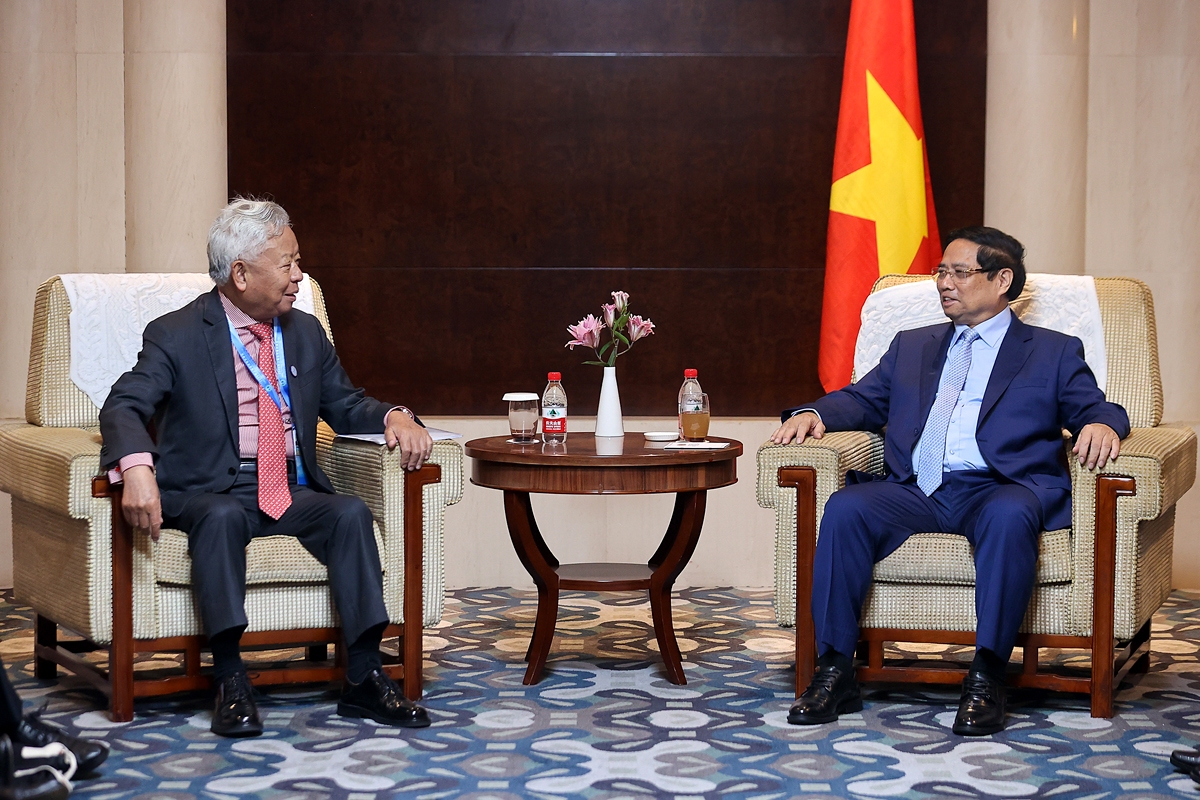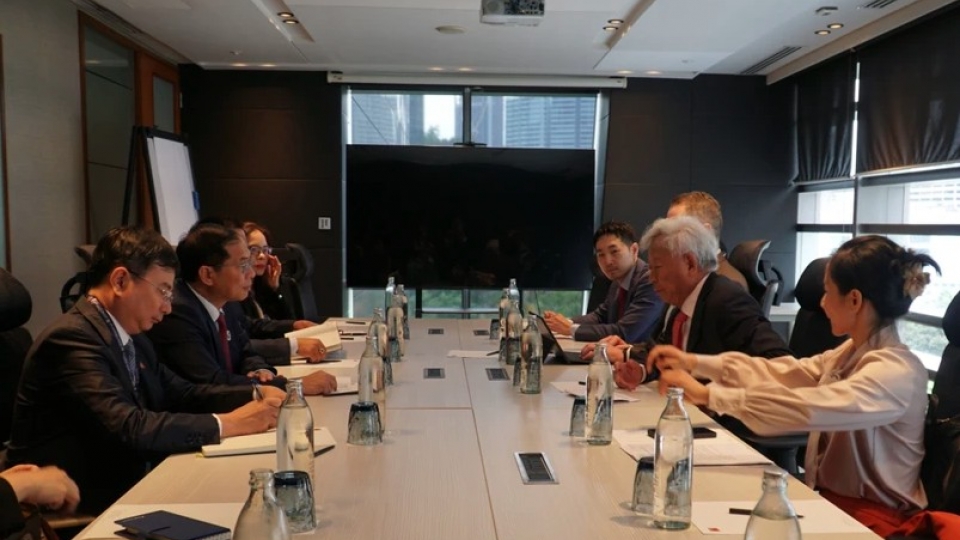Vietnam seeks AIIB support for major railway projects
VOV.VN - Vietnamese Prime Minister Pham Minh Chinh, while attending the Shanghai Cooperation Organisation (SCO) Summit in Tianjin, China, met with Jin Liqun, President of the Asian Infrastructure Investment Bank (AIIB), on August 31, discussing the bank’s financial support for key infrastructure projects in Vietnam.

PM Chinh requested AIIB’s assistance in mobilising finance for the Lao Cai – Hanoi– Hai Phong railway line, connecting Vietnam with China, and an electricity grid linking Vietnam with the ASEAN region.
The Lao Cai – Hanoi– Hai Phong railway line, approved by the National Assembly in February, has a total investment of over VND203 trillion (approximately US$8.37 billion). The main line spans nearly 391 km with standard gauge (1,435 mm) tracks and several branches totaling 27.9 km, crossing nine provinces and cities. Designed speeds range from 80 to 160 kmh depending on sections, accommodating both passenger and freight transport. The project aims for completion by 2030 at the latest.
Vietnam currently lacks a direct electricity connection with ASEAN countries, relying instead on transmission links with neighbours such as Laos, Cambodia, and China. The ASEAN Power Grid project is a long-term initiative to connect regional electricity networks. At last year’s 44th and 45th ASEAN Summits, PM Chinh expressed Vietnam’s support for establishing an ASEAN electricity market connected via an underground transmission system.
At the meeting, PM Chinh also urged AIIB to continue directly financing priority infrastructure projects and provide preferential loans for Vietnamese enterprises, both state-owned and private, with favourable interest rates and grace periods. With Vietnam targeting economic growth of 8.3–8.5% this year and double-digit growth in coming years, capital demand remains significant, he said. The PM also assured that Vietnam’s public debt is within a safe threshold at 34% of GDP at the end of 2024, and priority projects align closely with AIIB’s strategic objectives.
The Prime Minister praised AIIB’s cooperation with Vietnamese partners and invited AIIB President Jin Liqun to visit Vietnam in September 2025 for direct discussions with local partners. He also proposed that both sides regularly review the results achieved after each working session, address arising difficulties and obstacles, and continue to promote further cooperation.
AIIB President Jin Liqun commended Vietnam’s progress in raising income levels compared with other developing countries and expressed confidence that Vietnam can achieve its ambitious double-digit growth targets through a combination of sound macroeconomic policies and effective external resource mobilisation. He affirmed AIIB’s commitment to supporting Vietnam in mobilising funding for strategic infrastructure projects, including renewable energy and climate adaptation initiatives.
AIIB, established in 2016 as a multilateral development bank with 57 founding members including Vietnam, now has 110 member countries as of September 2024. In Vietnam, AIIB has primarily funded private-sector projects in solar energy, hydropower, and climate-resilient infrastructure, totaling US$223 million.





